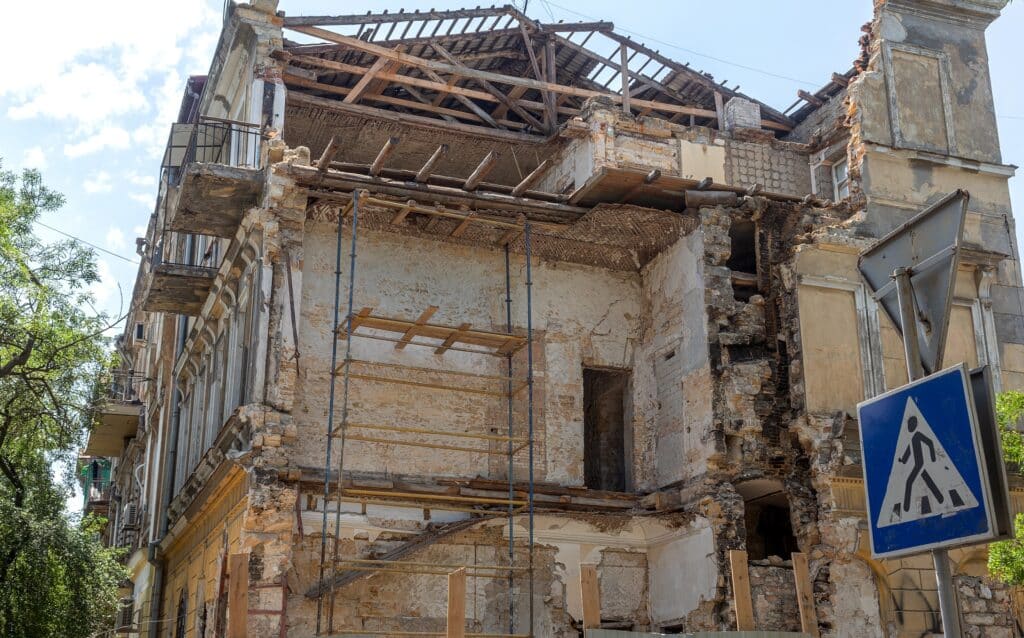Selling a House with Termite Damage in Philadelphia, PA
Termite damage is one of the most stressful problems a homeowner can face—and for those looking to sell in Philadelphia, PA, it can feel like an impossible obstacle. With the city’s older housing stock and humid summers, termites thrive, causing structural issues that scare off buyers and reduce property values. The good news? Selling a home with termite damage is absolutely possible, and you don’t have to go through the process alone. This guide explains your options, from repairs to selling as-is, so you can make the right decision for your situation.

Understanding Termite Damage in Philadelphia Homes
Philadelphia is full of historic row homes, townhouses, and single-family properties. While charming, many of these homes were built decades ago with wood framing that termites love. The most common issues include:
- Hollow-sounding walls and floors.
- Buckling or sagging wood beams.
- Visible mud tubes along foundations.
- Weak or cracked structures from long-term infestations.
Even small colonies can cause thousands of dollars in damage if left untreated. This makes termite issues a big concern for potential buyers and a major factor in a successful home sale.
Legal Disclosure Requirements in Pennsylvania
In Pennsylvania, sellers are legally required to disclose known property defects—including termite damage—when selling a house. That means if your Philadelphia home has a history of infestation or structural problems caused by termites, you must be transparent with potential buyers. Failing to disclose can lead to:
- Contract cancellations.
- Buyer lawsuits for fraud or misrepresentation.
- Financial penalties.
Honesty is the best policy, and understanding disclosure laws is the first step to avoiding legal headaches.
Challenges of Selling a Termite-Damaged Home the Traditional Way
While you can sell your house with termite damage, the traditional real estate process has several hurdles:
- Inspections can kill deals: Home inspectors almost always identify termite activity or prior repairs.
- Repair costs: Buyers often demand expensive treatment and structural work before closing.
- Extended time on market: Homes with termite history may sit unsold for months.
- Price reductions: Even after repairs, buyers may negotiate steep discounts.
For homeowners in Philadelphia who need to sell quickly, this route can be frustrating and financially draining.
Repairing vs. Selling As-Is: Which is Right for You?
If you’re debating whether to fix the damage or sell as-is, here’s what to consider:
- Repairing makes sense when:
- The damage is minor and inexpensive to fix.
- You plan to maximize profit in a hot neighborhood.
- You have time and resources for renovations.
- Selling as-is makes sense when:
- The infestation caused extensive structural issues.
- You need to sell fast (foreclosure, relocation, medical bills).
- Repair costs exceed what you’d gain from listing.
In many cases, homeowners in Philadelphia choose the as-is route for peace of mind and financial security.
Why Selling to a Cash Home Buyer is a Practical Option in Philadelphia
At We Buy Houses Philadelphia, we specialize in buying homes in any condition—including those with termite damage. Our process is built for speed and simplicity, helping you avoid the stress of repairs, showings, and agent fees. Benefits include:
- No repairs needed: We purchase homes as-is.
- No realtor commissions: Save thousands in fees.
- Fast closings: Cash in your hands in as little as 7–14 days.
- Local experts: As Philadelphia residents, we understand neighborhood values and market conditions.
Whether your home has minor cosmetic damage or severe termite destruction, we can make you a fair cash offer and close on your timeline.
Step-by-Step: How the Cash Offer Process Works
- Contact us: Call 215-883-4833 or fill out our quick form.
- Walkthrough or photos: We’ll evaluate the home’s condition.
- Receive a cash offer: Get a fair, no-obligation offer based on local market data.
- Choose your closing date: Finalize the sale when you’re ready.
It’s that simple—no hidden fees, no surprises.
Housing Market Context in Philadelphia
Philadelphia’s housing market is competitive, with many buyers seeking renovated, move-in-ready homes. This makes selling a property with termite damage on the traditional market even more difficult. However, cash buyers like We Buy Houses Philadelphia are not deterred by property condition, which means you can sell quickly without the stress of competing against newly renovated listings.
Tips for Philadelphia Homeowners Facing Termite Damage
- Document everything: Keep records of inspections and any repair work completed.
- Compare options: Calculate the net profit from repairing vs. selling as-is.
- Act quickly: Termite infestations worsen over time and can reduce value further.
- Work with a trusted buyer: Partner with a local team that has experience buying homes in all conditions.
You Can Sell Your Termite-Damaged Home
Termite damage doesn’t mean you’re stuck with an unsellable property. With the right approach, you can sell your Philadelphia home fast and move on with confidence. At We Buy Houses Philadelphia, we’re committed to providing homeowners with a simple, stress-free way to sell—even with termite issues.Call us today at 215-883-4833 to get your fair cash offer and sell your termite-damaged home quickly, without repairs or hassles.